Kunming festival showcases traditional events and brings them to life for a growing global audience
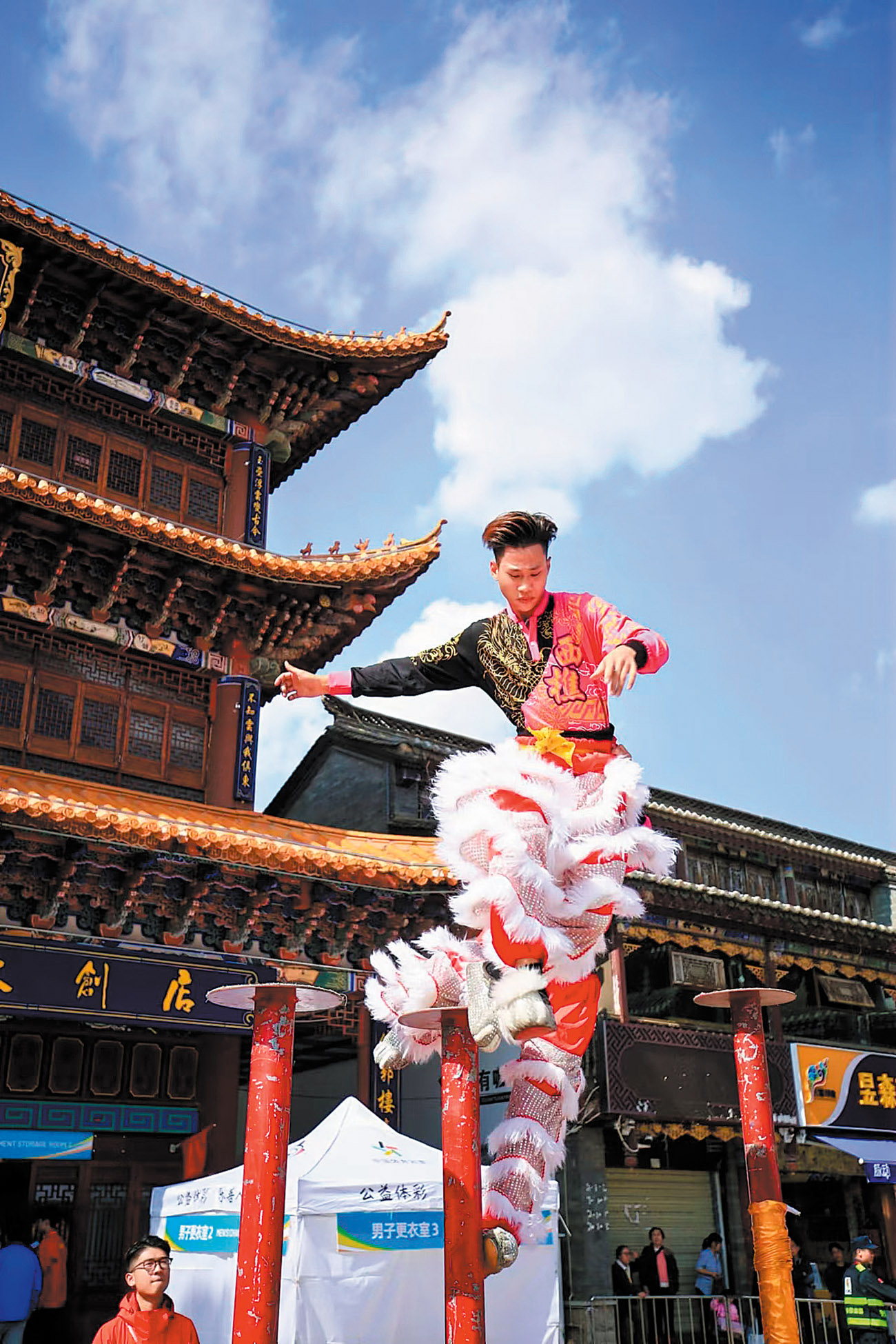
More than 700 athletes from around the world gathered at the edge of Dianchi Lake in Yunnan province on Oct 17 to kick off the second Traditional Sports International Festival.
Set against a backdrop of lush green mountains and clear waters, the event featured dragon and lion dances, Peking Opera, martial arts, and traditional Yunnan ethnic performances. Athletes did not just watch — they joined in, dancing alongside performers in a spirited celebration of Chinese culture.
The festival, which concluded on Oct 21 in Kunming’s Yunnan Ethnic Village, offered a vivid showcase of traditions, including the music and dance of the Miao, Yi, Wa and Lisu peoples. The closing ceremony ended with a bonfire party, capping off five days of bringing together sports and cultural heritage for a global audience.
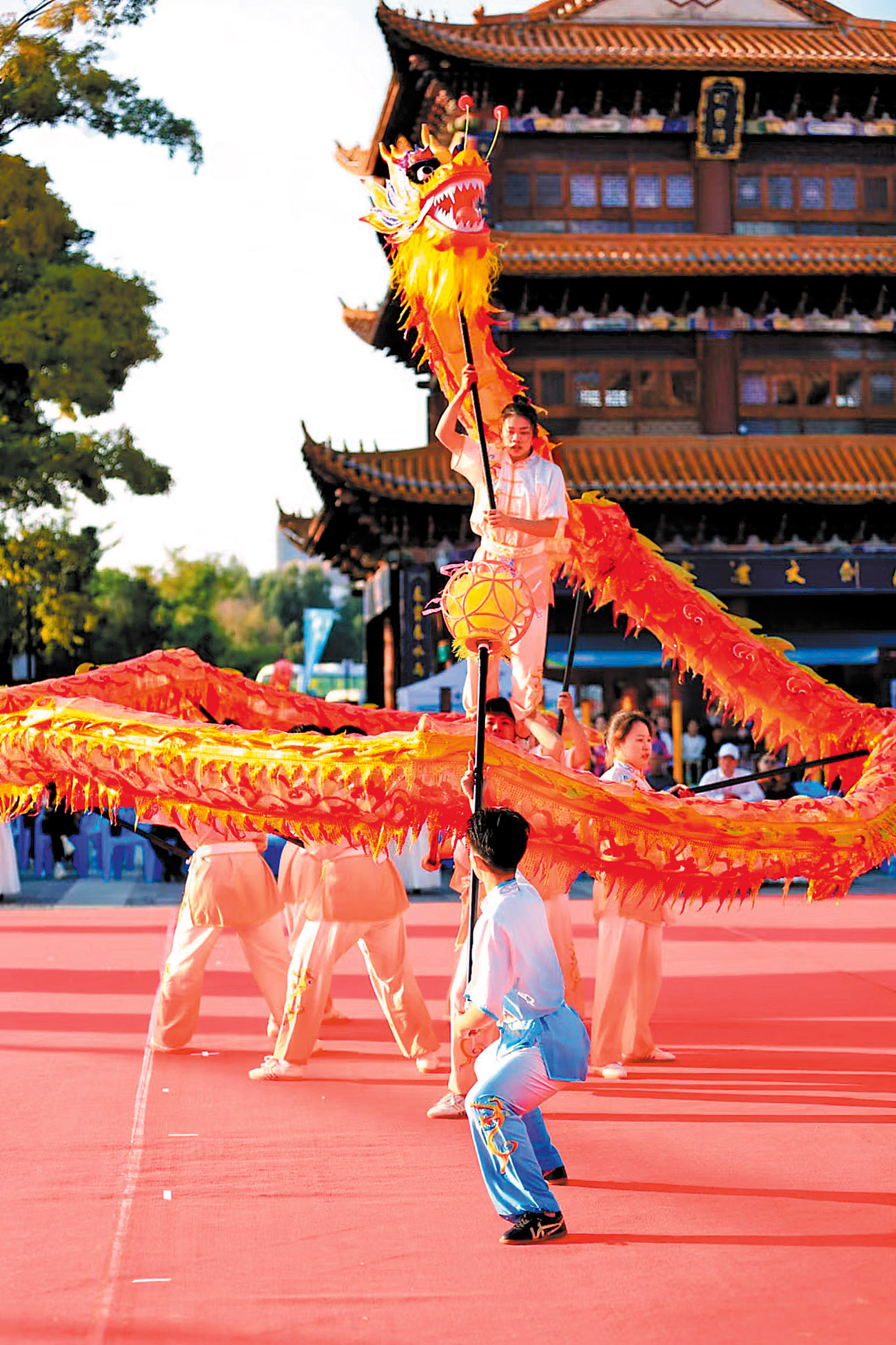
The event, organized by the All-China Sports Federation and co-hosted by the International Sports Exchange Center of the General Administration of Sport of China, Yunnan Provincial Sports Bureau, and Kunming Municipal People’s Government, saw a significant increase in international participation this year.
Among the 723 athletes, 353 hailed from 27 countries and regions — including Singapore, Thailand, Malaysia, Vietnam, the United States, Germany, Canada, Mexico, India, South Korea and Japan.
In addition to core competitions in wushu, health qigong and Go, the festival introduced dragon and lion dancing — one of China’s most iconic traditional sports, which has recently gained a strong international following.
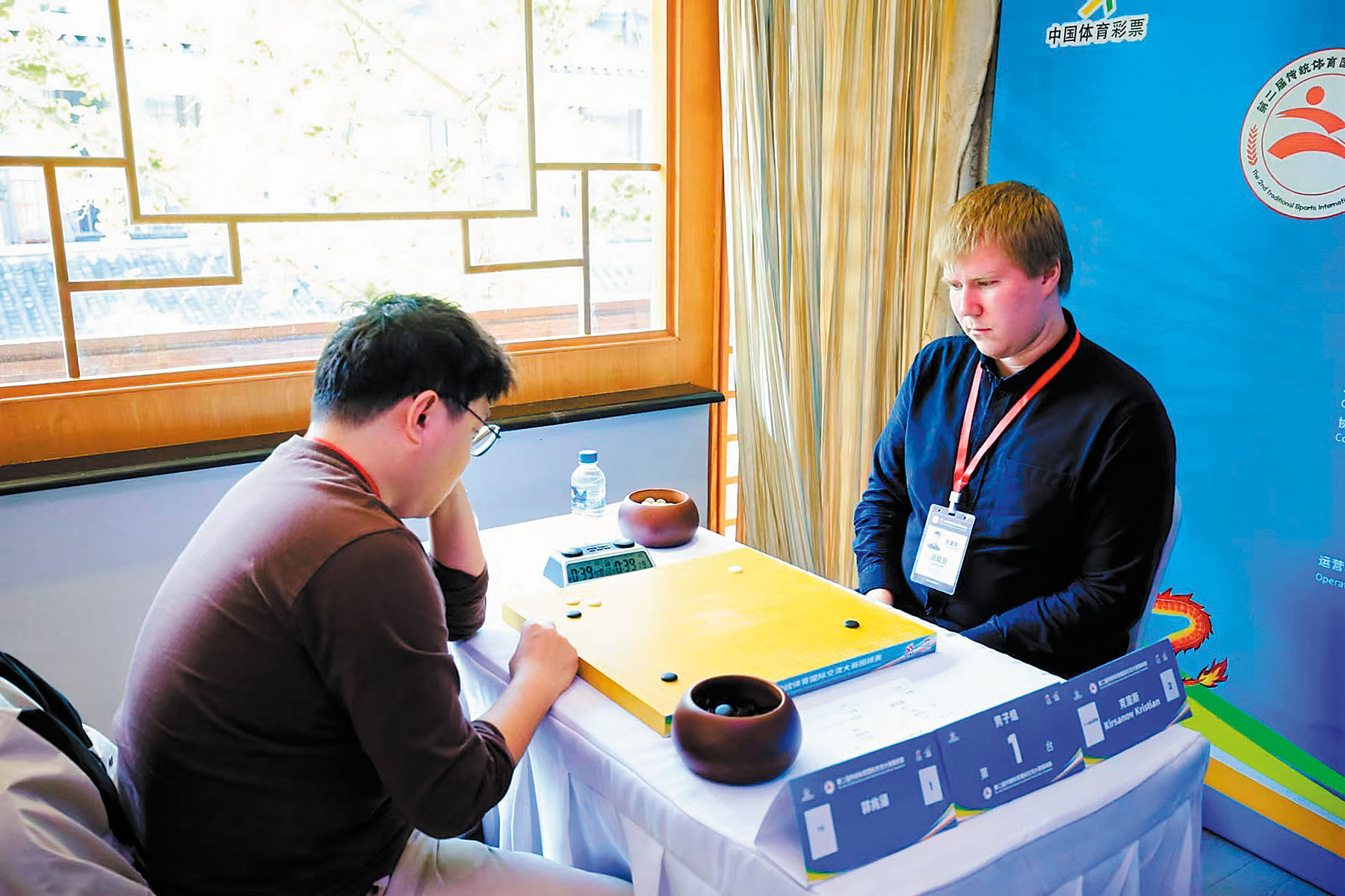
Zhang Xiaojing, deputy director of the Yunnan Provincial Sports Bureau, emphasized the significance of this year’s addition of the dragon and lion dance competitions. “Not only does it promote traditional Chinese culture, but it also combines competition with performance, adding artistic and visual appeal to the event,” Zhang said.
The dragon and lion dance events wrapped up on Oct 19, with Guangzhou Sport University’s Dragon and Lion Dance Team taking home the gold in the traditional dragon dance category. Held in Guandu Ancient Town, one of the cradles of “Dian culture”, the competition was accompanied by a vibrant dragon and lion dance parade through the scenic town.
“Our goal is to bring sports closer to the people. That means taking our competitions into communities, business districts and scenic spots so that more people can experience the sense of participation, fulfillment and happiness that sports bring,” Zhang said.
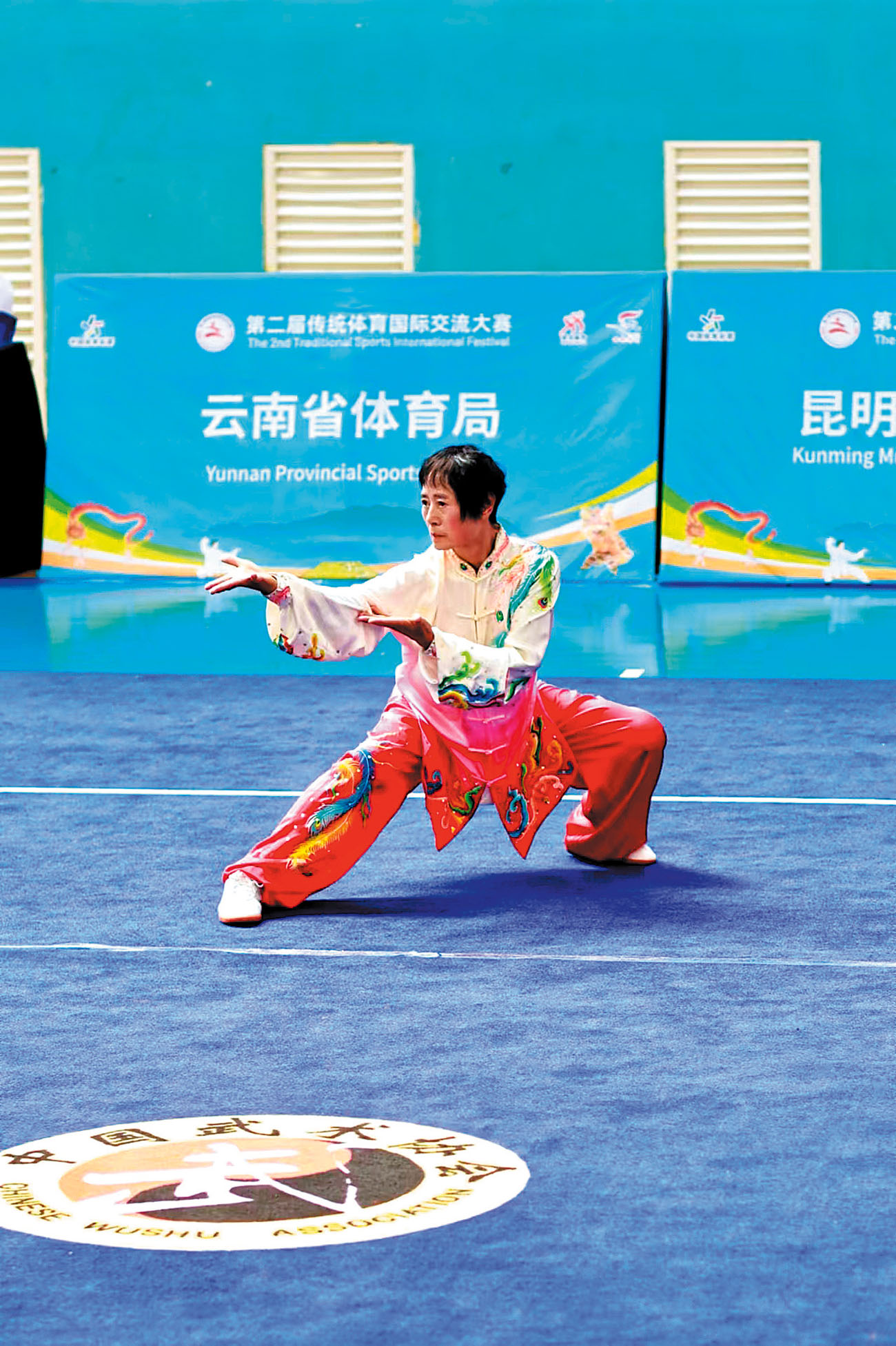
The Go competition was held at the Yunzi Go Academy, a public museum that primarily highlights the various achievements of
Chinese Go. Meanwhile, the wushu and health qigong competitions were staged at the National Sports Training Center of Haigeng in Kunming. This renowned “meritorious training base” for China’s national teams once again served as a vital platform for preserving and promoting traditional Chinese sports.
Yunnan team member Xiao Ruiqi emphasized that health qigong is accessible to people of all ages, including younger generations. “After practicing, you feel relaxed, happy and recharged — it helps to relieve physical fatigue,” Xiao noted.
“We warmly welcome all health qigong enthusiasts to Yunnan to participate. It’s not about chasing rankings; it’s about gaining health,” he added.
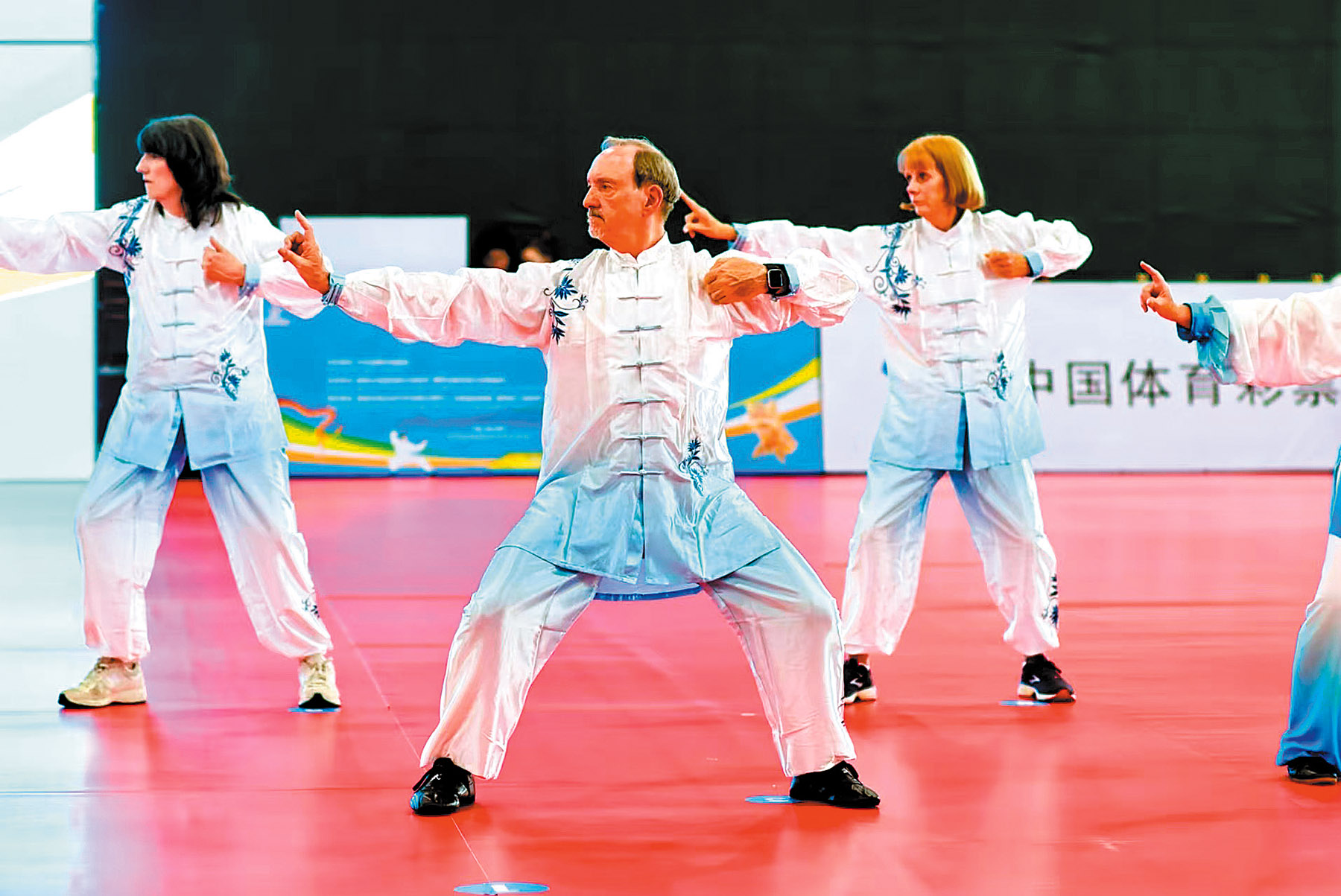
This festival provides a platform for domestic and international participants to communicate and compete while connecting traditional Chinese sports enthusiasts worldwide.
The event also featured various cultural and sports exhibitions, including a traditional sports culture exhibition, and interactive displays of ethnic costumes in Guandu Ancient Town.
Wei Daishun, director of the International Sports Exchange Center of the General Administration of Sport of China, emphasized that traditional Chinese sports embody the nation’s history and culture, acting as a bridge between China and the world.
“The competition utilizes traditional Chinese sports as a medium for cultural exchange, providing a platform for enthusiasts globally to share skills, foster cultural connections and enhance mutual understanding,” he said.
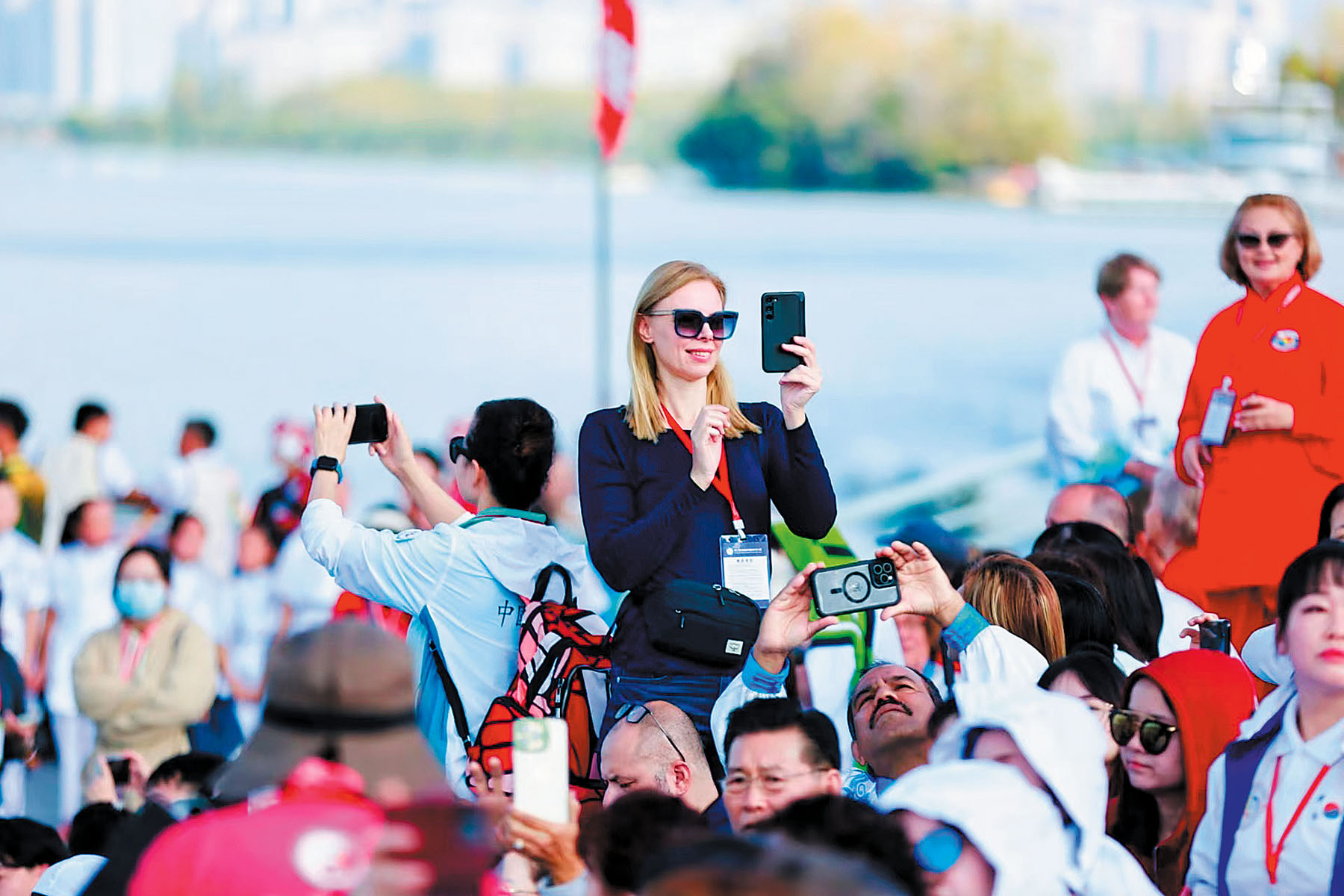
The Traditional Sports International Festival returned to Yunnan province for a second consecutive year, following its inaugural event last December in Qujing.
Tao Zhong, deputy secretary-general of the Yunnan provincial government, highlighted that the province has also organized significant events such as the Kunming marathon and a cycling festival. Additionally, Yunnan has facilitated unique bilateral events and two consecutive China Outdoor Sports Industry Conferences.
He said in the future, Yunnan aims to establish itself as a “highland training destination, outdoor sports paradise, and year-round event playground”, with plans to attract more national and international events.


